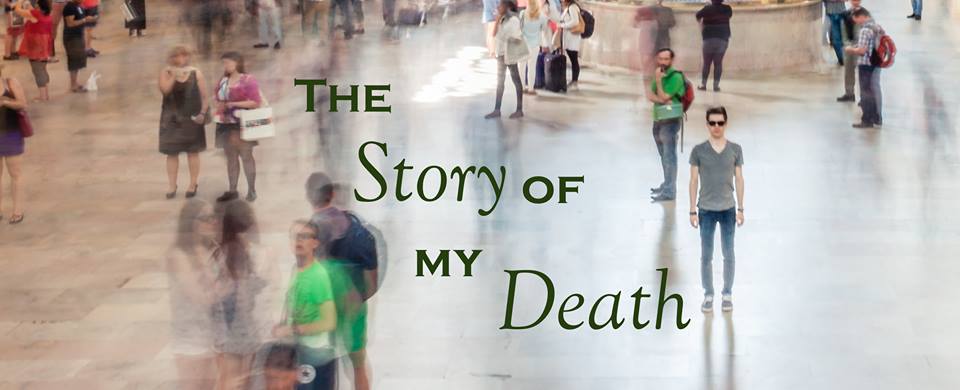Sam and I walk the glistening sidewalks in this city, minutes after a warm autumn rain passed through. He runs ahead, scaling the undersides of fire escapes, pulling himself up into any climbable tree. There is still a mist, and he dashes through it. He is a little boy, yes, but he is also some kind of spirit, some kind of playful force of nature.
But this force of nature reaches for my hand when we cross the street and calls me “Dad,” grins over his shoulder when I tell him to wait up.
We turn to the left where James Street runs diagonally along the cemetery, and I wonder about the people sleeping there under the ground. All those lives, dust to dust. I wonder how any of us make it from one day to the next, our lungs still filling, our hearts still beating the seconds. I wonder how we can cling to life so fiercely, even through these latter days, when the world spins chaotic and violent, when powerful men seem intent on destroying everything around them. I stare at the cemetery and I think of the weak and the poor among us.
The rain begins to fall again, first in lonely drops, then in earnest. With at least eight blocks to go, it’s clear that we are about to get very, very wet. Golden leaves pave our way.
“Through the rain!” I shout a battle cry, my walk turning into a jog, and in that moment I wonder why I don’t take my kids for walks in the rain more often.
“Dodge the puddles!” Sam shouts back, dancing on his toes all the way, as if the world is his hopscotch grid. As if skipping along on his toes will stop the rain.
* * * * *
On Sunday we stand beside the baptismal font, surrounded by that great cloud of witnesses, living and otherwise. Abra goes first, climbing up on the stone ledge and leaning over the water, her blond hair falling in wisps. I wonder what she sees in that moment through her big blue eyes, what her six-year-old mind thinks about the water and the crowd and the words.
The three small scoops of water run down over her hair (in the Name of the Father), drip down on her cheeks (and of the Son), run like tears (and of the Holy Spirit). She looks up and comes back to us, hops like Tigger, always moving. She grins the gap-toothed grin of a young girl exhilarated by life, and water, and the idea of something unseen but crucial happening there under the somber gaze of the stained glass.
Sammy is next. He pulls his shoulders up around his ears, as if this baptism is one that makes him cringe a bit. He would rather be running through the streets, baptized by the rain, than stand in a church while wearing a tie, everyone looking at him.
I baptize you in the Name of the Father, and of the Son, and of the Holy Spirit.
He raises his dripping head and smiles the sheepish grin of You were right, Dad, it wasn’t that bad as well as Can you believe I’m growing up this fast? I think of rain falling on golden leaves. I think of walking with him through the city.
Finally, Leo. Little Leo. He shakes his head vigorously when Reverend Lauren offers to take him, so he and I move in over the font together. I lean forward, and for a moment it is both of us getting baptized, both of us being made new.
I baptize you in the Name of the Father, and of the Son, and of the Holy Spirit.
The water runs off his head, but he doesn’t shrink back. He doesn’t even flinch. He simply stares down into the shimmering, as if down there in the clearness lies every answer to every question, if we would only give him enough time to soak them all up. And then Reverend Lauren says the words again, the words she said over all the children, words that sound like a promise oh too good, a solemn hope.
You are sealed by the Holy Spirit in Baptism and marked as Christ’s own forever.
* * * * *
Sam and I keep walking, the drops hitting our faces. The leaves drift, too, stripped by the rain. Walking with him, through a day like that, a city like this, I feel marked by life, marked by a warm goodness that falls down through autumn leaves.
Maybe baptism starts in a church, guided by a pastor, observed by a gentle congregation. But I don’t think it ever stops there – I think baptism follows us down the street on a rainy autumn day, chases us through the leaves, catches us just across the street from the mechanic shop in that moment when your little boy looks up and asks you if he can jump in that puddle of glistening water, the one reflecting the golden leaves and the gray sky.
“Please, Dad? Just once?”






